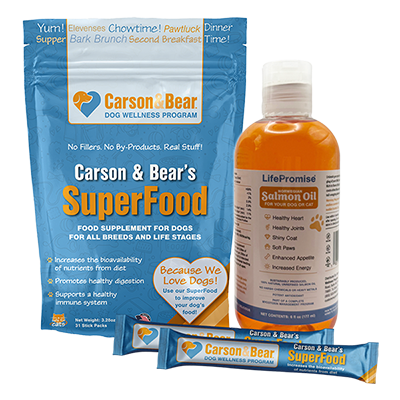As pet parents, we’re constantly on the lookout for ways to enhance our dogs’ lives. We want them to be healthy, happy, and full of vitality. A robust immune system acts as a shield, protecting them from various illnesses and ensuring they live a long, happy life. We should always be looking for ways to give our dogs the best possible care, and that includes supporting their immune health.
In this comprehensive guide, we’ll go deep into the factors that influence a dog’s immune system, explore natural ways to boost their immunity, and provide actionable tips to help your dog thrive. We want you to have a happy, healthy pup, brimming with energy and resilience.
Understanding Your Dog’s Immune System: The Body’s Defense Force
The immune system is a complex network of cells, tissues, and organs that work together to defend the body against harmful invaders like bacteria, viruses, and parasites. It’s a remarkable system that constantly adapts and learns, recognizing and neutralizing threats to keep your dog healthy.
Think of your dog’s immune system is equipped to battle against the elements. These include:
- White Blood Cells: Used to identify and attacking invaders.
- Antibodies: Specialized proteins that recognize and neutralize specific threats.
- Lymphatic System: A network of vessels and organs that transport immune cells and filter out harmful substances.
- Skin and Mucous Membranes: The first line of defense, acting as a physical barrier against pathogens.
This intricate system works tirelessly to keep your dog healthy, but it can be influenced by several factors.
Factors Affecting Your Dog’s Immune System
Just like us, our dogs’ immune systems aren’t invincible. Several factors can influence their strength and effectiveness:
- Age: Puppies and senior dogs tend to have weaker immune systems compared to adult dogs. Their immune systems are still developing or may be declining with age, making them more susceptible to infections.
- Stress: Chronic stress can wreak havoc on the immune system. Just like us, dogs experience stress, whether from changes in their environment, separation anxiety, or loud noises. This stress can suppress their immune response, making them more vulnerable to illness.
Nutrition: A balanced and nutritious diet, including avoiding feeding high glycemic carbs, is the cornerstone of a healthy immune system. Without the right nutrients, your dog’s immune system won’t have the resources it needs to function optimally.
- Underlying Health Conditions: Certain health conditions, such as cancer or autoimmune diseases, can weaken the immune system. These conditions can disrupt the delicate balance of the immune response, making it harder for the body to fight off infections.
- Medications: Some medications, such as corticosteroids or chemotherapy drugs, can have immunosuppressive effects. These medications are sometimes necessary to treat certain conditions, but it’s important to be aware of their potential impact on the immune system.
Empowering Your Dog’s Immunity: Natural Strategies
Now that we understand the factors that can influence your dog’s immune system, let’s explore natural and effective ways to boost their immunity and keep them in tip-top shape:
- A Balanced and Nutritious Diet: Fueling the Defense Force
- High-Quality Protein: Protein is an important component of the immune system. It provides the amino acids necessary for producing antibodies and other immune cells. Choose high-quality protein sources, such as meat, poultry, fish, or eggs.
- Healthy Fats: Omega-3 fatty acids, found in fish oil has potent anti-inflammatory properties that can support immune health. They also help maintain healthy cell membranes, which are crucial for immune function.
- Vitamins and Minerals: Ensure your dog’s diet is rich in vitamins and minerals, such as vitamin E, and zinc. These micronutrients play critical roles in immune function, acting as antioxidants and supporting various immune processes.
- Probiotics and Prebiotics: The gut microbiome, the community of bacteria and other microorganisms living in your dog’s digestive tract, plays a significant role in immune health. Probiotics introduce beneficial bacteria, while prebiotics provide nourishment for these good bacteria. Together, they help maintain a balanced gut microbiome, which can enhance immune function.
- Regular Exercise: Energizing the Immune Response
- Improved Circulation: Exercise gets the blood pumping, improving circulation throughout the body. This ensures that immune cells can travel efficiently to where they’re needed most, ready to fight off infections.
- Stress Reduction: Regular physical activity is a fantastic stress reliever for both humans and dogs. By reducing stress levels, exercise indirectly supports immune health.
- Weight Management: Maintaining a healthy weight is crucial for overall health, including immune function. Obesity can put a strain on the body and weaken the immune system, so keeping your dog active and fit is essential.
- Dogs should be in contact with nature: Being in contact with dirt, grass, and nature exposes dogs to a diverse array of microbes, which helps populate and maintain a healthy microbiome. This microbial diversity supports their gut health, aiding digestion and bolstering the immune system. Exposure to natural environments also allows dogs to build immune tolerance, reducing the likelihood of allergies and inflammatory responses. In essence, the interaction with varied microbes found in nature helps balance the dog’s immune system and promotes overall well-being.
- Stress Management: Creating a Calm Oasis
- Calm Environment: Dogs thrive in predictable and calm environments. Minimize exposure to loud noises, chaos, and other stressors that can trigger anxiety and suppress their immune system.
- Positive Reinforcement Training: Use positive reinforcement training methods to build your dog’s confidence and reduce anxiety. This approach focuses on rewarding desired behaviors, creating a positive and stress-free learning environment.
- Mental Stimulation: Provide plenty of mental stimulation through interactive toys, puzzle feeders, and training sessions. A mentally engaged dog is a happy dog, and happiness contributes to a healthy immune system.
- Quality Sleep: Recharging the Immune Batteries
- Rest and Repair: Sleep is essential for the body to rest and repair itself, including the immune system. During sleep, the body produces some types of cytokines, proteins that help regulate the immune response. Ensure your dog has a comfortable and quiet place to sleep and aim for at least 12-14 hours of sleep per day, depending on their age and activity level.
- Supplements: Targeted Immune Support
- Consult Your Vet: While a balanced diet should provide most of the nutrients your dog needs, certain supplements can offer additional immune support. However, it’s crucial to consult your veterinarian before giving any supplements to your dog. They can assess your dog’s individual needs and recommend appropriate options, such as:
- Probiotics: These can help promote a healthy gut microbiome, which is closely linked to immune health.
- Antioxidants: Antioxidants, such as vitamin C and vitamin E, can help protect cells from damage caused by free radicals, unstable molecules that can contribute to inflammation and disease.
- Immune-Boosting Herbs: Some herbs, such as echinacea and astragalus, are traditionally used to support immune function. However, it’s essential to consult your vet before giving any herbs to your dog, as some can interact with medications or have adverse effects.
- Hygiene and Preventive Care: Keeping Germs at Bay
- Regular Vet Visits: Schedule regular checkups with your veterinarian to ensure your dog is up to date on vaccinations and preventive care. Vaccinations help protect against common infectious diseases, while routine exams can detect any underlying health issues that may compromise your dog’s immune system.
- Clean Environment: Keep your dog’s living environment clean and free of potential hazards. Regularly clean their bedding, food and water bowls, and toys to minimize exposure to bacteria and other pathogens.
- Avoiding exposure to chemicals and pollution: helps prevent oxidative stress by reducing the number of harmful free radicals that can damage cells. Oxidative stress occurs when the body’s antioxidant defenses are overwhelmed by these free radicals, leading to inflammation and cellular damage. This can weaken the immune system, making it less effective in fighting infections and diseases. By minimizing exposure to pollutants and chemicals, the body experiences less oxidative stress, allowing the immune system to function optimally and maintain overall health.
When to Consult Your Veterinarian: Recognizing the Signs
While natural approaches can significantly support your dog’s immune system, it’s essential to consult your veterinarian if you notice any signs of illness, such as:
- Lethargy or Weakness
- Loss of Appetite
- Vomiting or Diarrhea
- Coughing or Sneezing
- Skin Rashes or Itching
- Discharge from the Eyes or Nose
- Changes in Urination or Defecation
Your vet can diagnose any underlying health conditions and recommend appropriate treatment options. Early intervention is key to managing illnesses and preventing complications.
A strong immune system is the foundation of your dog’s overall health and well-being. By providing them with a balanced diet, regular exercise, stress management, quality sleep, appropriate supplements (under veterinary guidance), and preventive care, you can help boost their immunity and protect them from illness.
Remember, a healthy dog is a happy dog, full of energy and ready for adventure. By prioritizing their immune health, you’re giving them the gift of a vibrant and fulfilling life. So, go ahead and shower your furry companion with love, care, and the tools they need to thrive.



